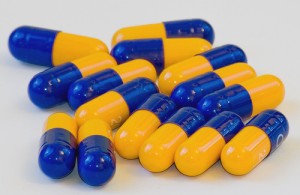 Trade officials from the EU and India are meeting today to continue negotiations of a free trade agreement, which they hope to complete by the end of the year. The European Union is seeking to include TRIPS-Plus patent and data exclusivity provisions that block access to generic medicines. This has alarmed Indian and global health activists, because Indian generic firms supply medicines to a majority of people in the developing world, for whom prices charged by branded firms are out of reach. For instance, Médecins Sans Frontières reports that 80% of donor-funded anitretrovirals for HIV/AIDS treatment are purchase from India.
Trade officials from the EU and India are meeting today to continue negotiations of a free trade agreement, which they hope to complete by the end of the year. The European Union is seeking to include TRIPS-Plus patent and data exclusivity provisions that block access to generic medicines. This has alarmed Indian and global health activists, because Indian generic firms supply medicines to a majority of people in the developing world, for whom prices charged by branded firms are out of reach. For instance, Médecins Sans Frontières reports that 80% of donor-funded anitretrovirals for HIV/AIDS treatment are purchase from India.
Background information on EU-India FTA intellectual property requirements
- “The Intellectual Property and Investment Chapters of the EU-India FTA: Implications for Health” Joint briefing paper by six NGOs. May 2011.
- Draft text of the intellectual property chapter, dated July 2010
Statements About February 2012 EU-India Summit
The Asia Pacific Network of People Living With HIV
The APN+ Board strongly condemns the European Union’s continuing attacks on generic medicines through the EU-India FTA negotiations. At the EU-India Summit being held in New Delhi today, the EU is pressuring the Indian government to announce political “trade-offs” for the FTA negotiations. [Full APN+ Statement]
Dr. Unni Karunakara, International President of Médecins Sans Frontières
We have watched too many people die in places where we work because the medicines they need are too expensive. We cannot allow this trade deal to shut down the pharmacy of the developing world. [Full MSF Statement]
Mundrika Gahlot of the Delhi Network of Positive People
“Whether we get to live or die should not be up to trade negotiators. We’re all here today with one clear message to India and the EU: Don’t trade away our lives.” [Full DNPP Statement]
Rohit Malpani, Policy Advisory to Oxfam:
The summit on Friday will be closely watched to see whether the EU and India will negotiate a trade agreement which puts people’s lives before the commercial interests of multinational drug companies. At a time of austerity and declining aid budgets, especially for health, efforts to increase medicine prices for the world’s poor would be a double blow and have a devastating impact on the achievement of health-related Millennium Development Goals. [Full Oxfam Statement]




